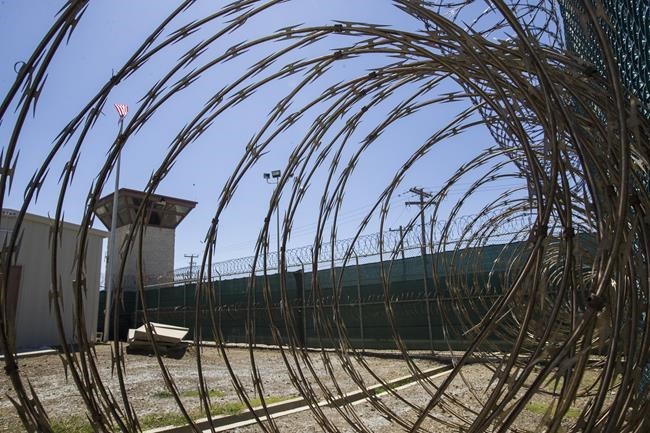WASHINGTON (AP) — A military judge at Guantanamo Bay has ruled one of the 9/11 defendants unfit for trial after a military medical panel found that the man's sustained abuse in CIA custody years earlier has rendered him lastingly psychotic.
The judge, Col. Matthew McCall, said the incompetency finding for Ramzi bin al-Shibh meant that prosecution would continue for his four co-defendants without him.
McCall issued his ruling late Thursday. Pre-trial hearings for the remaining defendants resumed Friday in the military courtroom at the U.S. naval base on Cuba. No trial date has been set for the case, which has been slowed by logistical problems, high turnover and legal challenges.
A Yemeni, al-Shibh is accused of organizing one cell of the 19 hijackers who commandeered four commercial airplanes to carry out the Sept. 11, 2001, attacks, which killed nearly 3,000 people outright in New York, Washington and Pennsylvania. The attacks were the deadliest of their kind on U.S. soil.
The attacks rocked Americans and people around the world. They led the George W. Bush administration to take extraordinary steps in what it called a war on terror: invading Afghanistan and Iraq, setting up an extraordinary program of CIA interrogation and detention, and creating the special prison and military commission at Guantanamo.
A military medical panel last month diagnosed al-Shibh as having post-traumatic stress disorder with secondary psychosis, and linked it to his torture and solitary confinement during his four years in CIA custody immediately after his 2002 arrest.
Al-Shibh has complained for years since his transfer to the U.S. naval base at Guantanamo Bay that his guards were attacking him, including by invisible rays, so as to deprive him of sleep and cause him pain. McCall's ruling noted that psychological reports dating back at least to 2004 had documented al-Shibh's mental issues.
Defense attorney David Bruck told McCall in a hearing Tuesday that al-Shibh's overwhelming focus on trying to stop the invisible attacks, and his insistence that his defense lawyers do the same, rendered him incapable of meaningfully taking part in his defense.
Bruck pointed to what he said was al-Shibh’s solitary confinement over four years in detention at CIA black sites, and torture that included his being forced to stand sleepless for as long as three days at a time, naked except for a diaper and doused with cold water in air-conditioned rooms, for the man’s lasting belief that his American guards were still conspiring to deprive him of sleep.
Bruck indicated in Tuesday’s hearing that al-Shibh would be expected to remain in custody while court officials waited for him to become mentally competent again, if that ever happens.
Defense attorneys and a U.N.-appointed investigator have argued that the five 9/11 co-defendants should be given physical and psychological care for the lasting effects of the torture they underwent while in CIA custody under the Bush administration.
Bruck told McCall in Tuesday's hearing PTSD treatment would offer the best hope of al-Shibh ever regaining competency to stand trial. He said the forced sidelining of the U.S. case against the man would be “an opportunity for the country to come to account on the harm” done by what he called the CIA's “program of human experimentation.”
The five 9/11 defendants were variously subjected to repeated waterboarding, beatings, violent repeated searches of their rectal cavities, sleep deprivation and other abuse while at so-called CIA black sites.
The CIA says it stopped its detention and interrogation program in 2009. A Senate investigation concluded the abuse had been ineffective in obtaining useful information.
President Joe Biden this month declined to approve post-trauma care when defense lawyers presented it as a condition in plea negotiations.
Ellen Knickmeyer, The Associated Press

